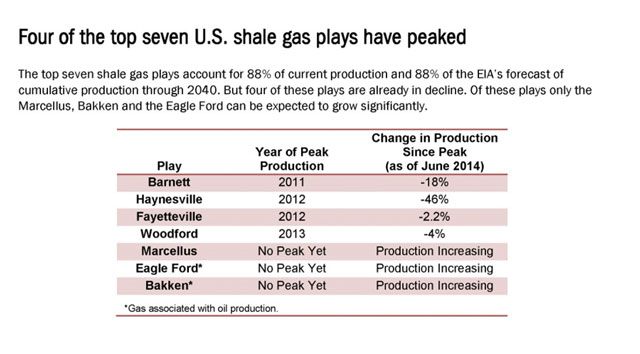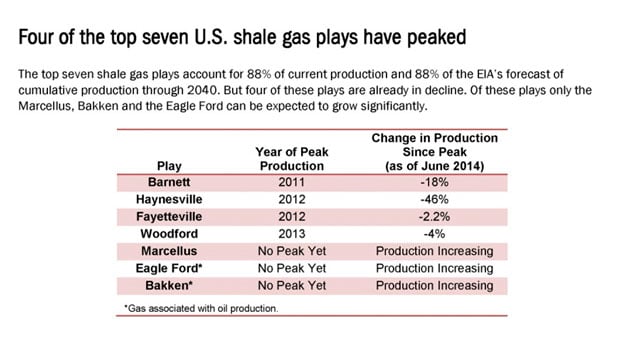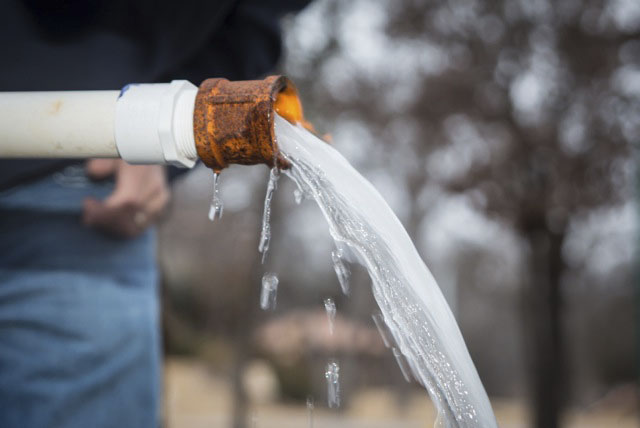
Truthout is a vital news source and a living history of political struggle. If you think our work is valuable, support us with a donation of any size.
Economic predictions about the fracking industry’s potential growth have for the most part gone unquestioned — until now.
A new report from the Post Carbon Institute exposes highly inflated forecasts and concludes that the amount of oil that can be tapped by hydraulic fracturing cannot be maintained at the levels assumed beyond 2020.
The report, “Drilling Deeper: A Reality Check on US Government Forecasts for a Lasting Tight Oil & Shale Gas Boom,” says inflated forecasts from the Energy Information Administration have fostered a lack of urgency to transition to renewable energy. The report also looks at the oil industry’s increased pressure to relax restrictions on fracking and change oil and gas export rules.
“The Department of Energy’s forecasts — the ones everyone is relying on to guide our energy policy and planning — are overly optimistic based on what the actual well data are telling us,” says David Hughes, a geoscientist and author of the Post Carbon Institute report.
The report shatters the government’s estimate of the potential productivity of America’s shale regions. Four out of seven of the top shale regions have peaked and are now in a decline, the report says. Another three will peak in production before the government’s forecast predicts. In decline already are the Barnett, Haynesville, Fayetteville and Woodford Shales.
 Source: Post Carbon Institute
Source: Post Carbon Institute
In his 2012 inauguration speech, President Obama touted the further development of natural gas coupled with meaningful regulation as America’s “all of the above” answer to energy independence. But Americans have yet to see any meaningful federal regulation of fracking. There has been little to no monitoring of the long-term consequences of the fracking industry despite growing public concern.
Environmental Impacts of Fracking Visible Around the Country
Examples of inadequate environmental protection related to fracking are piling up.
Pennsylvania’s attorney general is looking into claims that the state’s Department of Health has ignored citizen complaints about the fracking industry. And the Pennsylvania Department of Environmental Protection was recently compelled to release 243 reports that indicate water contamination caused by the fracking industry.
 Flare at a Marathon tank battery site in the Eagle Ford Shale region in Texas. ©2014 Julie Dermansky
Flare at a Marathon tank battery site in the Eagle Ford Shale region in Texas. ©2014 Julie Dermansky
Meanwhile, regulators in Texas’ Eagle Ford Shale are failing to monitor fracking industry fumes. An investigative report published by the Center for Public Integrity showed air monitoring tests were completed far from toxic sites.
 Steven Lipsky’s contaminated water in Weatherford, TX. ©2014 Julie Dermansky
Steven Lipsky’s contaminated water in Weatherford, TX. ©2014 Julie Dermansky
This year, eight members of congress called for the Environmental Protection Agency (EPA) to reopen contaminated water studies near fracking sites in Dimock, Pa., Parker County, Texas, and Pavillion, Wyo., after the EPA’s Inspector General concluded the agency was justified in intervening to protect drinking water from hydraulic fracturing.
Lon Burnam, a Texas State Representative who lost his latest bid for reelection after serving 18 years, acknowledges that the fracking industry has changed the economic situation in America.
Watch video of Lon Burnam on the economics of fracking:
“It is the single most important thing that has turned around the economy since the recession of 2008,” Burnam told DeSmogBlog. But he, like most Texans, knows a thing or two about booms and busts in the industry. He worries about what will be left in the wake of the fracking boom.
“There is woeful neglect on the regulatory front,” according to Burnam. “Part of it is the lack of will because these state agencies are controlled by the very polluting interests they are supposed to be regulating, but part of it is there is no money being put back into the system to address the problems being created by the boom.”
Burman warns that selling our oil and gas abroad under the guise of energy security is a mistake. He says it will raise prices and create a new wave of fracking.
Watch video of Lon Burnam on the need to better regulate the fracking industry:
ShaleTest Environmental Testing, a non-profit organization, recently released “Project Playground,” a report on air quality near playgrounds close to natural gas industry sites in Texas’s Barnett Shale region.
According to the report, carcinogens were present at three playgrounds at levels exceeding the Texas Commission of Environmental Quality’s long-term ambient limit.
“The oil and gas industry claims that they’re drilling responsibly,” ShaleTest president Tim Ruggiero says, but “these tests show they’re not.”
Toxic emissions from the fracking industry are among the factors that prompted citizens in Denton, Texas, to press for a ban on fracking. Earthworks released video taken with a FLIR camera in Denton in the last month showing fumes at fracking industry sites, according to Earthworks.
 Flowback at an EagleRidge Energy site less then 300 feet from homes in Denton, TX. ©2014 Julie Dermansky
Flowback at an EagleRidge Energy site less then 300 feet from homes in Denton, TX. ©2014 Julie Dermansky
Denton Councilman Kevin Roden, who supports banning fracking in Denton, points out that the boom in Denton is over and the city has little to show for it. The Post Carbon Institute’s report proves him right. Extraction rates for natural gas in the Barnett Shale (which lies below Denton) are in decline.
But the industry’s inflated predictions have put pressure on politicians to relax restrictions on the existing ban on the export of crude oil. The Producers for American Crude Exports, a coalition of oil companies, is fighting to end the four-decade ban on crude exports.
Gulf Coast Oil reserves are at record highs and there is a surplus of liquefied natural gas (LNG). Proposals to allow exports are on the table in Washington.
“Planned LNG exports, possible crude oil exports, repatriation of manufacturing, investments in gas-fired electricity generation and pipeline infrastructure, are all predicated on the assumption of cheap and abundant oil and gas for the foreseeable future,’” the Post Carbon report’s author Hughes says. “Getting it wrong on future tight oil and shale gas production comes with a high vulnerability on energy security and infrastructure investment issues.”
While forecasts made by the industry are looked at with skepticism, government projections have been readily accepted.
“Based on our analysis, the reality is far different from what the industry is telling the Energy Department, and the Energy Department is, in turn, telling the public and the Congress,” Asher Miller, executive director of the Post Carbon Institute, says.
With that in mind, the Post Carbon Institute’s independent analysis stands to become a game-changing resource.
A terrifying moment. We appeal for your support.
In the last weeks, we have witnessed an authoritarian assault on communities in Minnesota and across the nation.
The need for truthful, grassroots reporting is urgent at this cataclysmic historical moment. Yet, Trump-aligned billionaires and other allies have taken over many legacy media outlets — the culmination of a decades-long campaign to place control of the narrative into the hands of the political right.
We refuse to let Trump’s blatant propaganda machine go unchecked. Untethered to corporate ownership or advertisers, Truthout remains fearless in our reporting and our determination to use journalism as a tool for justice.
But we need your help just to fund our basic expenses. Over 80 percent of Truthout’s funding comes from small individual donations from our community of readers, and over a third of our total budget is supported by recurring monthly donors.
Truthout’s fundraiser ends tonight! We have a goal to add 122 new monthly donors before midnight. Whether you can make a small monthly donation or a larger one-time gift, Truthout only works with your support.